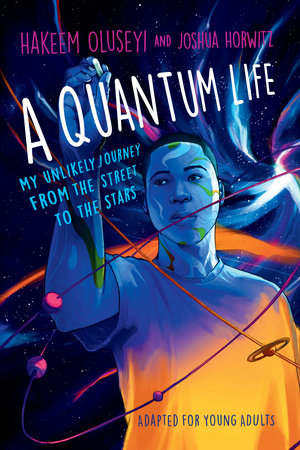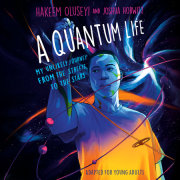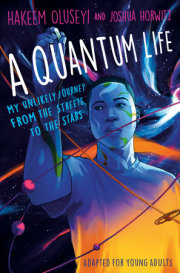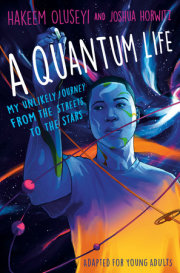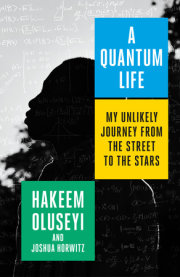1
1971: New Orleans East
I was four years old when my family busted apart. What I remember most about that last night together was all the fussing and fighting. When the noise woke us up, my older sister, Bridgette, and I lay in our bed and listened. Bridgette, who was ten, held my hand and tried to soothe me back to sleep. But the shouting just got louder.
I don’t know who started the ruckus. Mama and Daddy were always getting into it about this or that, but that night was meaner than usual. It sounded like either Mama had been stepping out on him, like Daddy said, or else that was a filthy lie, like Mama said. By the time Bridgette and I stuck our heads out of our bedroom to look, they’d been hissing and hollering for half an hour.
Just then, Mama picked up a heavy glass ashtray full of butts and threw it at Daddy’s head. He ducked and the ashtray hit the wall hard. That’s when Daddy punched her. He used to be an amateur boxer, and a pretty good one, according to Aunt Middy. But I’d never seen Daddy take a swing at Mama. That night, he hit her square across the side of the head. She dropped like a sock puppet. As soon as she went down, Daddy kneeled beside her and started crying and apologizing and petting her up, saying sweetheart this and sweetheart that.
But Mama always kept score, and she would always rather get even than make up. Daddy begged her to come to bed, but Mama just turned away from him and shook her head no. Bridgette led me to our bedroom and sang me a lazy-voice lullaby to help me get back to sleep. Mama had other ideas. Later that night, when Daddy was sleeping, she fetched a can of lighter fluid from the barbecue and sprayed it on her side of the bed. When she touched her Zippo to the mattress, Daddy thought he’d woke up in hell, which I guess he had.
When we heard him shrieking, Bridgette and I scrambled out into the hall again, just in time to see Daddy dragging the burning mattress into the backyard. We rushed out behind him through the thick cloud of black smoke that filled the house.
It must have been warm that evening, because all the neighbors came out onto their back porches in their underwear to watch. Daddy dumped a potful of water on the mattress and glared around at the folks on their porches. “What y’all looking at? We got bedbugs is all.”
Bridgette led me back through the smoky hallway to our bedroom, shaking her head like she couldn’t believe she was living in such a crazy house with such crazy folks. Mama stayed on the back porch with her arms crossed, staring at the smoking mattress and sucking on her Kool cigarette.
The next morning, she told me and Bridgette it was time to pack up and clear out. “Hurry up now, before your Daddy gits home!”
We didn’t have any suitcases, so we filled some plastic garbage bags with clothes and whatever else we could grab from out of the house. When we’d pushed everything that would fit into the trunk of our red Ford Maverick, Mama said, “That’s enough.” I climbed in behind the driver’s seat and Bridgette loaded whatever was left into the back seat next to me: a bunch of shoes and bowling trophies, an old blanket and a pile of Mama’s dresses still on hangers.
Then we were driving out of New Orleans East and out of the Goose, the only neighborhood I’d ever known. I asked Mama where we were going, and she said, “California.” I didn’t know what “California” meant. When I asked her if Daddy was coming to California, she just said, “Hush up, now,” and lit a Kool. I didn’t want to be a crybaby, but my lips started trembling and then my whole head was shaking and snot was running out of my nose. I looked through the back window at the Goose and said goodbye with my eyes.
Bridgette rode shotgun up front, scanning the radio for Motown songs. While Sly and the Family Stone sang “Family Affair,” I counted the 185 seconds it took to play. Then I counted the lampposts spinning past as we headed out of town. Counting was always the way I slowed things down when they felt like they were moving too fast. I’d count heartbeats, stairs, or the rotations of a ceiling fan. When we reached the highway, I counted the cars driving past us in the other direction. After the sun set, I counted the passing headlights till I fell asleep.
I woke after dark and had to pee. Mama pulled over and I climbed out into the chilly night air. There were no cars and no moonlight--just two spouts of headlights pointing forward into the dark. I felt tiny, peeing out under the biggest, blackest sky I’d ever seen. Mama was smoking a cigarette alongside the car, and when I asked her why the sky was so big, she told me, “That’s a Texas sky. Everything’s bigger in Texas.” As my eyes adjusted to the dark, the stars overhead grew brighter and brighter, and I felt smaller and smaller.
Then we were rolling west again, and there was nothing left to count along the darkened highway. So I lay out across the pile of Mama’s dresses, stared up through the window at a slice of sky, and began to count the stars.
2
When we headed out west, Mama was in her mid-twenties, a beautiful, brown-skinned young woman who took to wearing dashikis and bell-bottoms and her hair all natural, in a big round Angela Davis ’fro, after a few months in California. I remember her lighting candles and incense, smoking joints, and hosting card parties where all sorts of folk would hang around till all hours. Bridgette made me go to bed by midnight, but Mama’s parties kept going and going. Bridgette would have to build a wall of pillows around our heads so we could finally get to sleep.
Bridgette was my protector in those days. She helped dress me in the morning, and she put me to bed at night. She cooked me breakfast and dinner and walked me to the corner store or to school. As the youngest and smallest in the family, I was a convenient target for my teenage cousins in L.A. who liked to show off their kung fu moves to each other. And I was peculiar, always counting things all the time. I also cried more than boys were supposed to cry, and I wet my bed later than most boys.
But most of all, I was a target for bullies because I would rather play games indoors with Bridgette and her girlfriends than practice slap-boxing on the sidewalks with the dudes. The girls would either be playing jacks or jumping rope while singing rhymes or playing four-way hand-clapping games to songs like “Doctor, Doctor” and “Rockin’ Robin.” My hands were too small for jacks, but I was good at the hand-clapping and jump-roping games.
Papa John--the distant relative we stayed with in Watts when we first got to California--complained that all those girl games were turning me into a sissy. I didn’t know what a sissy was, but he said he was gonna beat it out of me. After he’d been drinking his whiskey at night, he’d make me sit on his knee and punch me hard in the chest to try to knock me off. Bridgette would hide his bottle, but he always seemed to find another one.
When I cried to Mama about Papa John hurting me, she said he was just trying to make a man out of me. What kind of man, I wondered, did he want me, a five-year-old boy, to be? A man like Papa John, whose breath always smelled like Crown Royal? A man like my daddy, with his strong arms and sweet, singsong voice?
By the time I turned six, Daddy’s voice was all I could remember about him. When the phone rang on holidays or my birthday, I ran to pick it up, hoping I’d hear his voice on the other end. But he never called. And after a while I stopped running after those rings.
3
Mama was working as a nurse’s aide in Los Angeles when she met Robert Black. He was born cross-eyed, and Mama took care of him at the hospital after he went there to get his eyes straightened up. She read to him from magazines and talked and joked with him. Mama liked his sweet manner, and she liked that he cooked and worked steady, her two must-be-must-haves in a long-term man.
Robert Black didn’t just cook. He actually was a cook--in the Merchant Marine. That made him a superstar to us, since we’d been getting by on Bridgette cooking out of cans ever since we’d landed in California. On Saturday afternoons, Robert Black would come over to Papa John’s and cook us exotic meals like peppers stuffed with rice and ground beef. I’d wolf them down like a hungry animal, and he’d laugh out loud, his gold front tooth shining out of his handsome, dark-skinned face.
When Robert Black became Mama’s high-rotation boyfriend, Bridgette and I started calling him Daddy Robert. Mama always seemed to have a new boyfriend. If he stuck around for more than a few months, Bridgette and I would call him Daddy--Daddy Bob, Daddy Fred, like that, since our real daddys were out of the picture at that point. Then one day Mama up and announced that she and Daddy Robert had got hitched. Bridgette (whose daddy was Mama’s first husband) was sore that we hadn’t been invited to the wedding, but Mama explained that they’d decided to keep it simple with a justice of the peace at the courthouse, seeing as how they’d both been married a couple of times before. When Bridgette asked her why she got married so often, Mama laughed and said, “Not so often! I only get hitched on leap years.”
So it was time to pack up the Maverick and move to Houston, which was Daddy Robert’s home port. In Houston, Daddy Robert would come and go, but mostly he was “gone out to sea,” which is where it turns out you spend most of your time when you’re in the Merchant Marine.
Mama worked nights in Houston, and for once she didn’t have a boss. As soon as we got to town, Daddy Robert bought her a little club called Jackie’s Hideaway. I never understood what exactly folks at her club were hiding away from, but Mama explained that Jackie was the name of the woman who used to own the club. The Hideaway had a bar and a small dance floor and a jukebox. On weekends, there was a DJ. Bridgette and I were only allowed to visit the Hideaway during the day, and only when Mama took us. We’d sit at the bar and Mama would make us Shirley Temples. If the cook was around, he’d make us cheeseburgers. We never wanted to leave.
Mama worked at the Hideaway most days from midafternoon till after midnight. She didn’t get home till three or four in the morning, and then she’d sleep in till noon. Some nights she didn’t come home at all. She wasn’t a tuck-you-into-bed mama. Or a get-you-up-and-off-to-school mama neither. That was on Bridgette, who shared not only a bedroom but a bed with me most of the time. Bridgette was my real mama in those days, even though she was just a skinny beanpole of a twelve-year-old. I could tell that she didn’t like having to be my sister and my mama. But she was the one who stuck by me when I needed taking care of.
One night, Daddy Robert was gone out to sea and Mama was going off to work, or out to a card party somewhere. Bridgette told Mama that I was coming down with a fever and that she should stay home to take care of me. Mama just laughed and said, “You know how to take care of Li’l Jame better than I do.” Li’l Jame was what she called me, unless she was angry, and then she’d call me JamesPlummerJunior, like it was all one name.
My fever got worse that night. When Bridgette called the Hideaway, they told her that Mama had left early. She didn’t come home, and she didn’t call. I was burning up so bad the whole bed was soaked with my sweat. Bridgette stayed up with me all night long, fussing over me with a cool wet cloth and running out to the all-night drugstore to buy some Vicks VapoRub to put on my chest when I was having trouble breathing.
At one point when I was deep in my fever dreams, I heard Bridgette praying next to me. “Please, Lord, don’t let Li’l Jame die on me tonight. Don’t let him die.” I opened my eyes to see her kneeling by the bed with her hands clasped together and pressed against her forehead. I tried to reach out to touch her hands, but I was floating above the bed by then. I thought how nice it would be to just float out the bedroom window and ride Bridgette’s prayer up over the rooftops and into the night sky.
My fever finally broke around dawn, which is when Mama glided through the front door, holding her high heels in two fingers slung over her shoulder. Bridgette lit into her like Mama was a teenager and Bridgette was her mama. She called her a bad mother who should be ashamed of herself.
“I’m okay, Bridgette,” I said, afraid Mama would get mad at her. “I’m okay, Mama.”
But Mama just waved her off and laughed. “I knew you’d tend him better than I could.” She was right about that.
Houston was the first place I got a peek at how white folks lived. My best friend that year was a white boy named Bobby, who lived down the street. I liked to hang at his house because his family would sit down to eat together at dinnertime, and afterward they would sit around and play card games or watch TV. Nobody shouted or hit anyone. At least, not in front of me.
Bobby’s parents taught me how to play bridge, which came easily and naturally to me, even though I was just six. I liked arranging my cards in my hand, lined up in order by suit. The hardest part was holding the cards in a neat fan so nobody could see them. Counting cards and keeping track of them was the easy part--four hands of thirteen cards in four different suits. Where my special powers came into play was seeing what the other players were holding in their hands without actually seeing their cards. First, I watched their eyes as they scanned their cards. Then I watched how they arranged and played their cards. If I held an ace of clubs, I could usually figure out who had the king. If I held five hearts, I could usually figure out where the other eight hearts were hiding. On good days, I felt like the comic-book hero Ultra Boy with his Penetra-Vision, which was even more powerful than Superman’s X-ray vision.
Copyright © 2023 by Hakeem Oluseyi. All rights reserved. No part of this excerpt may be reproduced or reprinted without permission in writing from the publisher.

